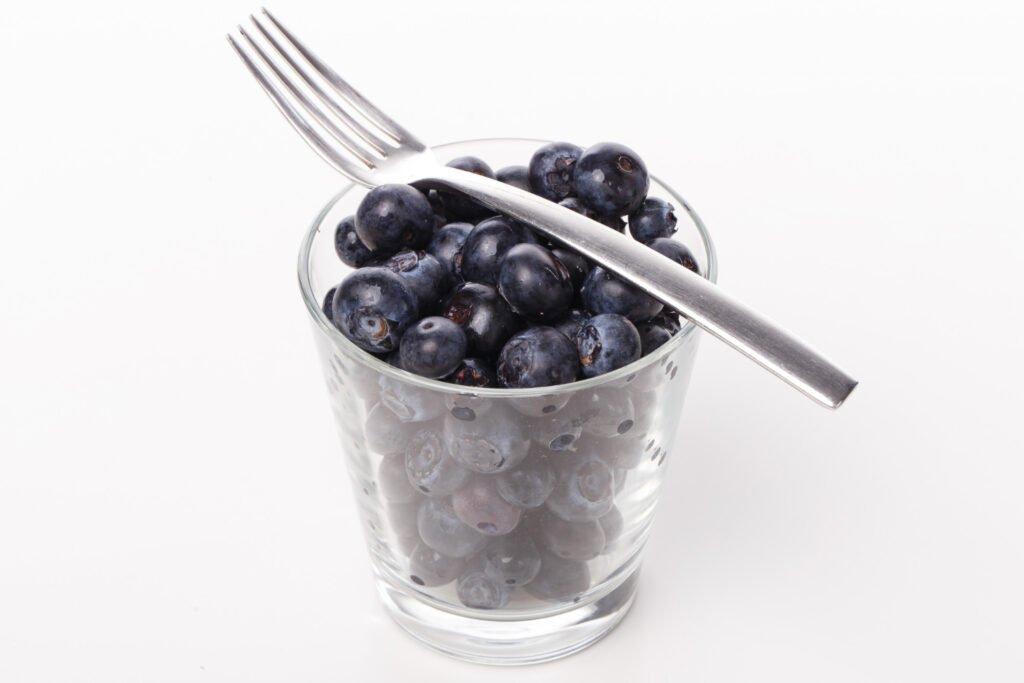
In this article
Blueberries are a nutrient-rich fruit known for their extensive health benefits, from supporting heart and brain health to protecting skin and vision. They are packed with essential nutrients like fiber, vitamin C, and manganese.
Consuming blueberries daily is beneficial as long as intake is moderate to avoid gastrointestinal issues. Generally, blueberries pose minimal health risks. Here’s a detailed look at the health benefits of blueberries and how to include them in your diet.
Antioxidant Properties
Blueberries are rich in antioxidants, which help prevent cell damage. A single serving of blueberries has a higher antioxidant capacity than plums, strawberries, or cranberries. These antioxidants, including anthocyanins and polyphenols, help reduce inflammation and oxidative stress, making blueberries one of the best fruits for functional health.
Heart Health
Heart disease is the leading cause of death in the United States, but blueberries may offer significant protection. They help prevent artery hardening, which can lead to heart attacks and strokes, by reducing inflammation and oxidative stress. A study showed that consuming one cup of blueberries daily improved artery function and cholesterol profiles in people with metabolic syndrome, suggesting that blueberries should be part of a heart-healthy diet.
Brain Function
Research indicates that blueberries enhance cognitive performance, improving memory and psychomotor function in older adults and those with mild cognitive impairment. Blueberries are also a key component of the MIND Diet, which aims to prevent dementia and age-related cognitive decline by combining elements of the Mediterranean and DASH diets.
Muscle Recovery
The antioxidants in blueberries, particularly polyphenols, can help reduce exercise-induced muscle damage (EIMD) by reducing inflammation. Studies have shown that blueberries aid in strength recovery and enhance muscle function, making them beneficial for athletes and active individuals.
Vision Support
Blueberries contain anthocyanins, which have protective effects on vision and eye health. They can help prevent light-induced damage to the retina, thereby supporting overall eye health.
Digestive Health
Blueberries are high in fiber, which aids in digestion and helps manage weight by promoting a feeling of fullness. They also benefit intestinal bacteria, particularly Bifidobacteria, which help digest fiber. Consuming blueberries in liquid form can enhance these beneficial bacteria in the gut.
Skin Protection
Blueberries may protect the skin from damage caused by environmental pollutants and UV radiation. The antioxidants in blueberries improve the skin’s response to these harmful factors, promoting healthier skin.
Nutritional Profile of Blueberries

One cup of fresh blueberries contains:
- Calories: 85
- Fat: <1 gram
- Sodium: 1.48 mg
- Carbohydrates: 21.5 grams
- Fiber: 3.55 grams
- Protein: 1.1 grams
Blueberries are also rich in vitamin C, manganese, and vitamin K, which are essential for immune function, wound healing, blood clotting, and bone health.
Risks of Blueberries
While blueberries are generally safe to eat, some individuals may have a blueberry allergy or intolerance. Additionally, consuming too many blueberries at once can lead to gastrointestinal symptoms due to their high fiber content.
Tips for Consuming Blueberries
When selecting fresh blueberries, choose ones that are dry, firm, plump, and smooth with a silvery-white coating. Dark-colored berries indicate ripeness. Store blueberries in their original packaging or a covered bowl in the refrigerator and consume them within ten days. Frozen blueberries should be kept frozen until use and consumed within three days of thawing.
To increase your blueberry intake, try:
- Adding mashed blueberries to flat or sparkling water with fresh mint or basil
- Freezing blueberries in ice cubes for colorful, nutrient-rich drinks
- Incorporating them into salads, tacos, jams, and chutneys
- Making a mock cobbler by warming blueberries with ginger and topping with an almond butter, oats, and cinnamon crumble
- Using blueberries in overnight oats, parfaits, pancakes, baked goods, acai bowls, and chia puddings
A Quick Review
Blueberries are a nutrient-dense fruit known for their extensive health benefits. They are rich in antioxidants like anthocyanins and polyphenols, which reduce inflammation and oxidative stress. Regular consumption supports heart and brain health, enhances muscle recovery, and improves vision and digestion. Blueberries also contain essential vitamins and minerals such as vitamin C, manganese, and vitamin K. Incorporating blueberries into your daily diet can boost overall wellness, but moderation is key to avoid gastrointestinal issues.











